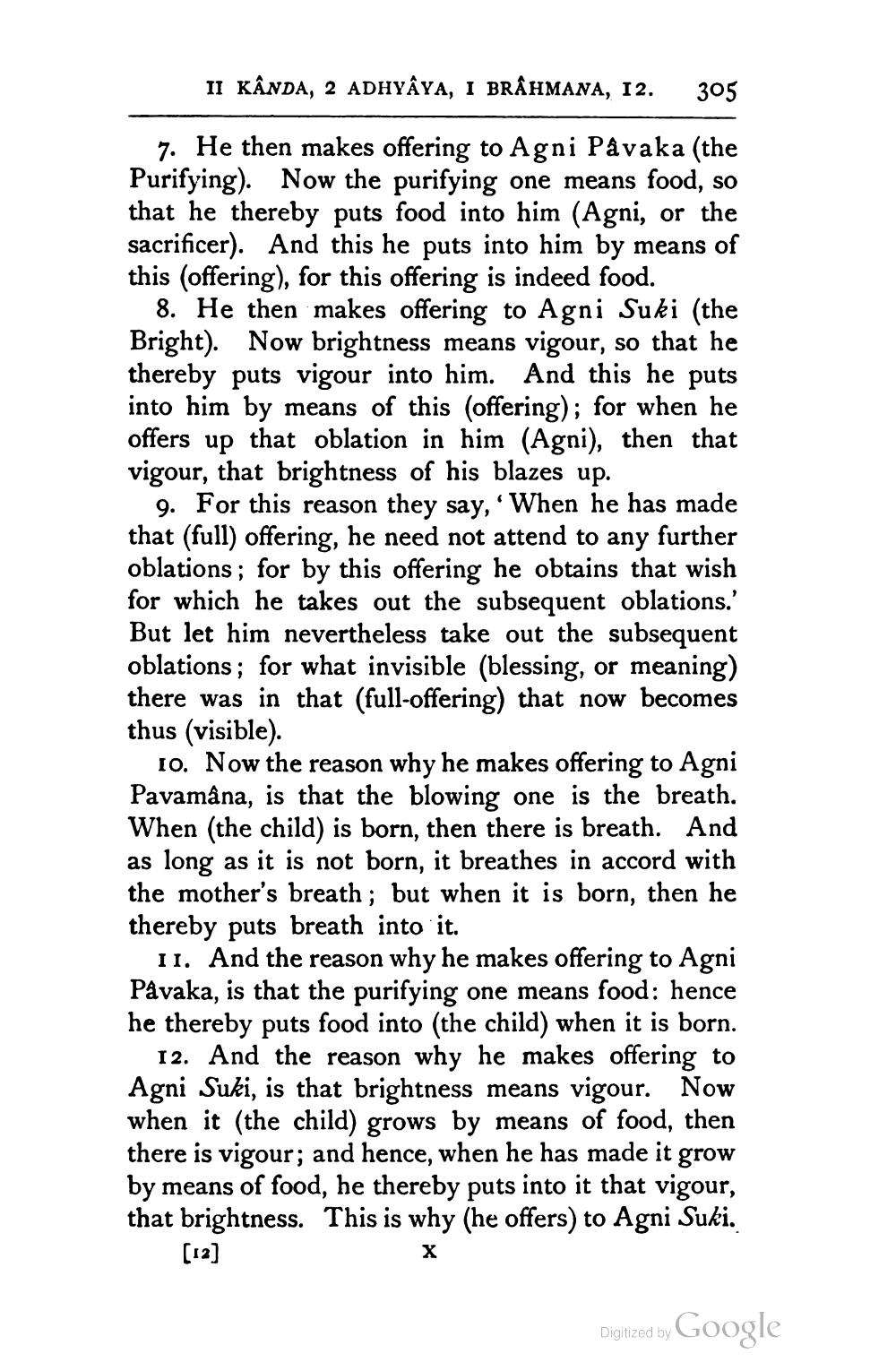________________
II KÂNDA, 2 ADHYAYA, I BRÂHMANA, 12.
305
7. He then makes offering to Agni Påvaka (the Purifying). Now the purifying one means food, so that he thereby puts food into him (Agni, or the sacrificer). And this he puts into him by means of this (offering), for this offering is indeed food.
8. He then makes offering to Agni Suki (the Bright). Now brightness means vigour, so that he thereby puts vigour into him. And this he puts into him by means of this (offering); for when he offers up that oblation in him (Agni), then that vigour, that brightness of his blazes up.
9. For this reason they say, 'When he has made that (full) offering, he need not attend to any further oblations; for by this offering he obtains that wish for which he takes out the subsequent oblations.' But let him nevertheless take out the subsequent oblations; for what invisible (blessing, or meaning) there was in that (full-offering) that now becomes thus (visible).
10. Now the reason why he makes offering to Agni Pavamâna, is that the blowing one is the breath. When (the child) is born, then there is breath. And as long as it is not born, it breathes in accord with the mother's breath; but when it is born, then he thereby puts breath into it.
11. And the reason why he makes offering to Agni Pavaka, is that the purifying one means food: hence he thereby puts food into (the child) when it is born.
12. And the reason why he makes offering to Agni Suki, is that brightness means vigour. Now when it (the child) grows by means of food, then there is vigour; and hence, when he has made it grow by means of food, he thereby puts into it that vigour, that brightness. This is why (he offers) to Agni Suki.
[12]
Digitized by Google




